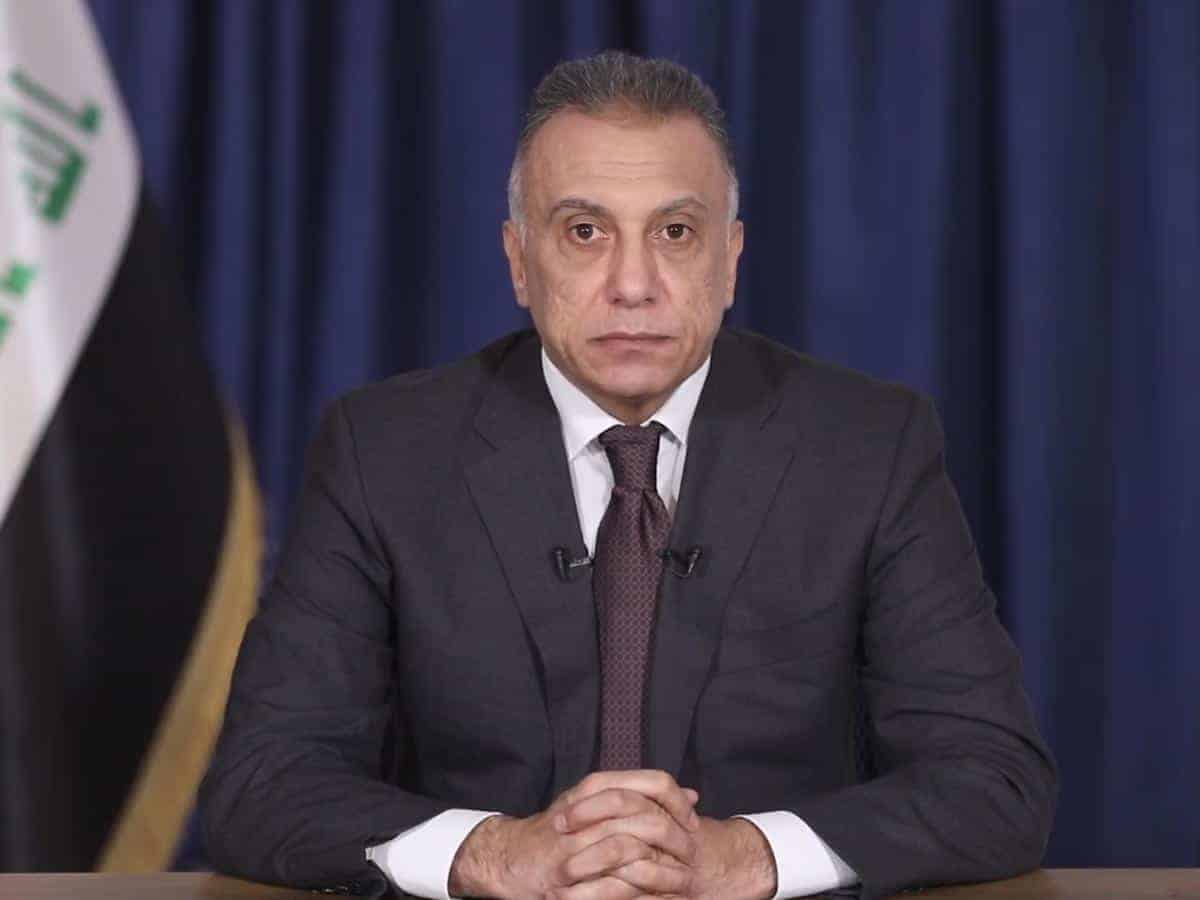
Just as Iraqi Prime Minister Mustafa Al-Kadhimi was trying to grapple with his country’s economic woes by implementing a 23 percent devaluation of the national currency on December19, the first since 2003, he received a rude reminder that the issues originating from the US assault on his country 17 years ago have not gone away.
On December 20, a barrage of rockets was fired near the US embassy compound. The Iraqi government blamed an “outlawed group,” while the US blamed militants affiliated with Iran and held the latter responsible.
Tehran called the strikes “unacceptable,” rejected all allegations of responsibility and called on the US to desist from “dangerous adventurism.” The US promptly sent a submarine armed with guided missiles to the Gulf, along with two cruisers, one of them equipped with 154 land-attack cruise missiles.
As the region remains fearful of a regional conflagration, the Iraqi prime minister faces several problems. There is no likelihood of economic recovery any time soon in his country: the economy is expected to contract by 11 percent this year, while the draft budget is looking at a deficit of $45 billion next year. With oil prices projected to hover around $40 throughout next year, there is no prospect of an economic upturn in the near future.
Domestic resentment about this economic situation has found expression in an unexpected area: Iraq’s Kurdistan region. Civil servants there began publicly protesting on December 2, angered by the non-payment of their salaries for several months. Government buildings and properties belonging to political parties were set on fire, and security forces used live ammunition to control rioting. Nine people were killed during five days of violence and nearly 60 were injured.
Iraq’s Kurds have had to endure internecine conflicts as well, including two rounds of fighting this month between regional Kurdish groups. In one incident, on December 13, fighters from the Turkish-origin Kurdistan Workers’ Party (PKK), who have enjoyed sanctuary in Iraq since the early 1990s, exchanged fire with their Iraqi hosts. The latter have come to resent the presence of their brethren from across the border because it has led to regular Turkish military retaliation that has caused heavy casualties.
In the other conflict, fighters from the People’s Protection Units (YPG) based in Syria exchanged fire with Iraqi kin attempting to sneak into Iraq and join PKK cadres in the mountains.
Despite these domestic issues, Al-Kadhimi is pushing ahead with plans for elections in June 2021. But his election law, which provides for smaller, one-member constituencies, raises the prospect of a revival of sectarian politics.
Iraq’s diverse problems affirm that the physical and political damage caused to the country by the US assault and occupation will take much more time to be repaired.
On Nov. 27, maverick politician Muqtada Al-Sadr made it clear that he is a candidate for prime minister by calling on his dedicated supporters to demonstrate in a number of cities against corruption. They clashed in Nasiriya with street protesters who have been demanding sweeping political reforms, leaving seven people dead and dozens injured.
On December 2 Al-Sadr went further, calling for the restoration of what he called the “Shiite Home” through an “honor pact” to handle various aspects of the forthcoming election, including campaigning and opposition challenges. Observers saw this as an attempt to revive the Shiite-Sunni-Kurd political triumvirate that has defined Iraqi politics since 2003.
In the face of serious opposition Al-Sadr publicly back-tracked, explaining that his call was an “ideological” and not a “political” appeal. Fears remain, however, that sectarian venom could still be used to poison the country’s politics.
Given the diverse challenges at home, Al-Kadhimi has had little choice but to seek the understanding and support of his neighbours.
The Arar border crossing, which opened at the end of November, offers the prospect of substantial trade and investment from Saudi Arabia. Iraqi officials have enthusiastically repaired the road-transport links and worked out the administrative and security arrangements required for the effective use of the crossing and its hinterland.
Egypt has emerged as another partner in Iraq’s economic revival, with Egyptian construction and building-materials companies spotting opportunities to work in the energy, housing, transport and industrial sectors, while the nation enjoys the benefits of buying Iraqi oil at discounted rates. The Iraqi contractors’ union says the country needs more housing, medical, railway, fertilizer and leisure facilities, with the total value of the work estimated at about $100 billion.
On December 17 Al-Kadhimi visited Turkey for his long-awaited meeting with President Recep Tayyip Erdogan. The two leaders identified PKK activities as detrimental to the interests of both countries but, given the inaccessible terrain they occupy and the local support they enjoy, it is not clear whether Iraq has the capacity to expel these militants. Therefore Turkey’s military incursions will continue.
Future meetings could result in more progress taking bilateral relations forward, including the opening of a second border crossing, a revival of the oil pipeline from Kirkuk to Ceyhan on Turkey’s Mediterranean coast, and expanded road and rail links.
Iraq’s diverse problems affirm that the physical and political damage caused to the country by the US assault and occupation will take much more time to be repaired. However Al-Kadhimi’s quiet but systematic approach to domestic issues, and his well-considered regional diplomatic engagements, suggest that the country could already be on the path of recovery.
Talmiz Ahmad is an author and former Indian ambassador to Saudi Arabia, Oman and the UAE. He holds the Ram Sathe Chair for International Studies at Symbiosis International University in Pune, India.

